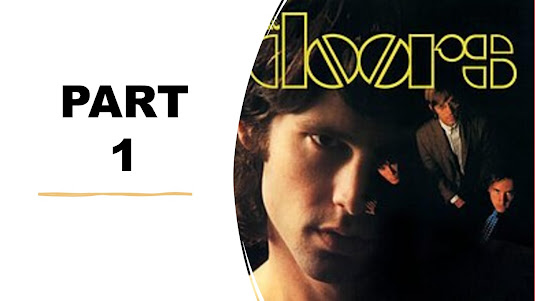THE DOORS’ “BACK DOOR MAN”: ORIGIN AND DEVELOPMENT - PART 1
One of The Doors' most iconic songs is undoubtedly
"Back Door Man," recorded in August 1966 for their first LP
("The Doors," January 1967).
By that time, the song was already part of their live
repertoire, having been included since their first steps together as a band: probably
since early 1966.
From then on, the group would play it at almost every
live performance until the end of their concert career in 1970.
In this first part of the article, we will see how
"Back Door Man" was created and developed, all the way to The Doors'
recording studio.
In the second part, which will be published in three
days, we will delve into The Doors' own work on the song and reveal a few
musical surprises about it.
This blues composition was written by Willie Dixon in
1960. However, he would not record it until 1970, at the age of 55, as the opening track on his album "I Am The Blues", where he is accompanied
by excellent musicians.
The earliest version of "Back Door Man", on
the other hand, is the one released in 1961 under the name of Howlin' Wolf,
a great artist who had been dividing his rough and tough style between Blues
and Rhythm and Blues since the early 1950s.
In the case of this song, his powerful and abrasive
voice, somewhere between spoken and sung, overpowers the insistent rhythm,
repeated without variation by the dry sounding drums.
The arrangement that characterizes this blues is
essential (almost undistorted electric guitar, electric bass and drums).
Within the austere instrumentation, we notice only one
concession to sound ornamentation, however confined to the background: the
quick, imaginative figures played from time to time by Otis Spann's piano.
All in all, Howlin' Wolf's song is musically and
rhythmically quite distant from the one that would appear five years later on The
Doors' debut album.
In fact, the group will not take its inspiration from
this Mississippi-born musician's piece, but from the later elaboration of
"Back Door Man" by John Hammond Jr.
Here we move a few years forward to 1964, when Hammond
Jr. released his cover of the song on his own album "Big City
Blues".
In this version of "Back Door Man," the musical
atmosphere and vocals become more sensuous and mellow than Howlin' Wolf's
almost angry vocal attack and uncompromising instrumental interpretation.
Between whispered guitar phrasing, a harmonica solo
and maracas accompaniment, Hammond Jr.'s adaptation seems less inspired and
authentic than the original.
Despite this limitation, it is Hammond Jr. who
introduces the pulsating rhythm held by the electric guitar and electric bass
that will be picked up and accentuated by The Doors.
In addition, this is the version of "Back Door
Man" in which the vocal part changes from Howlin' Wolf's hard, strongly expressive
and melodic tinsel-free style to Hammond Jr.'s more beckoning and softer one.
The latter artist is thus credited with introducing
the two main elements in the evolution of "Back Door Man": the vocal
mode and the throbbing rhythmic pattern. Two years later, with the necessary
modifications, they would distinguish the song recorded by The Doors.
Shortly after the group began playing live with the
final lineup (fall 1965), they heard Hammond Jr.'s track though a vinyl record
found at the home of guitarist Robby Krieger's parents (as reported in an
interview).
A few months later (August 1966, as mentioned above)
they recorded “Back Door Man” for their recording debut and placed it as the
opening of "The Doors" album’s B side.
END OF PART 1.
PART 2 WILL BE POSTED ON THURSDAY, THREE DAYS FROM
NOW.




Comments
Post a Comment